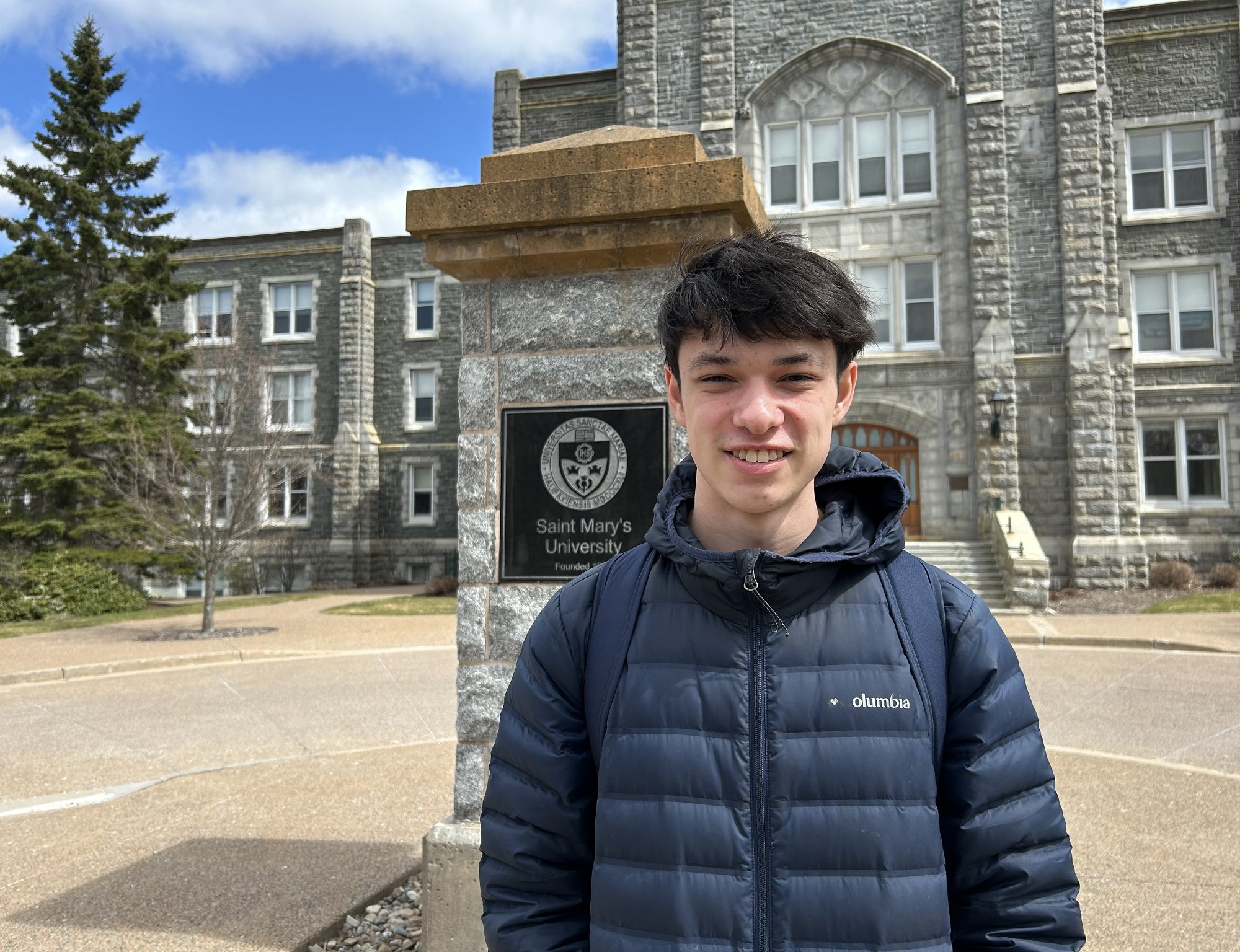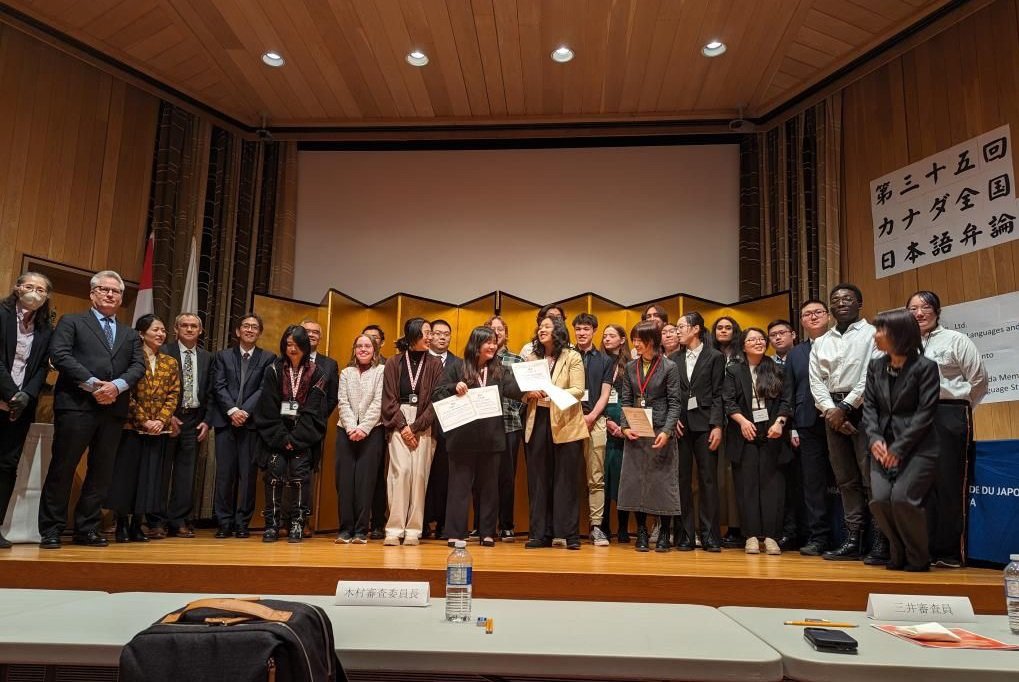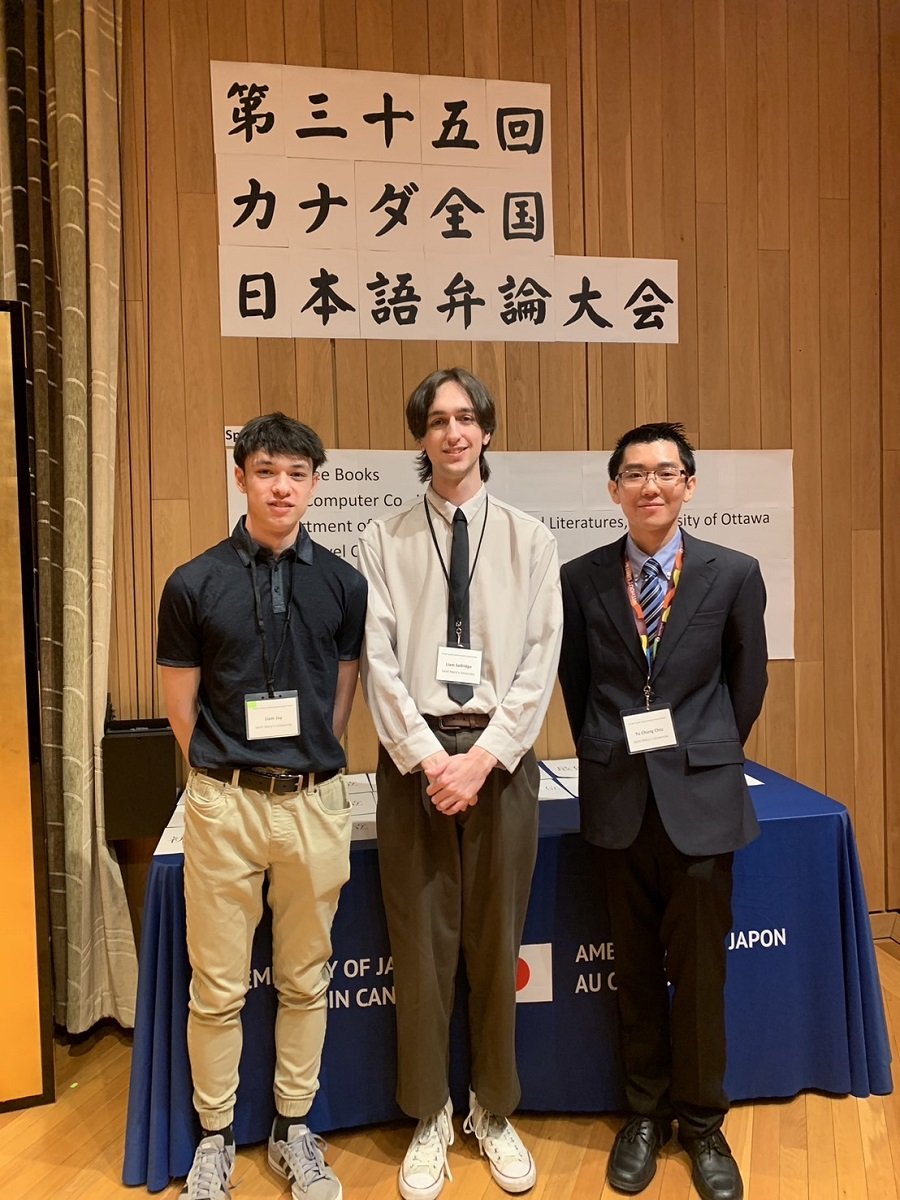Emi Morse, a first-year student, received the Honourable David C. Onley Scholarship Award from Canadian Hearing Services
Emi Morse may only be a few weeks into her academic career at Saint Mary’s, but she’s already making a name for herself. Entering the first year of her undergraduate program, Emi arrived at Saint Mary’s with big ambitions that begin with the Bachelor of Science program, focusing in Psychology, and will conclude with her eventually gaining a Masters in Audiology and becoming a Cochlear Implant Audiologist.
It's a very specific career path that stems from Emi’s own experience as a deaf individual with bilateral cochlear implants. Born without hair cells in her cochlea due to a genetic condition called Pendred Syndrome, Emi experienced total deafness from birth. Hair cells are essential for hearing, as they respond to sound frequencies and send electrical signals through the auditory nerve to the brain, where they are interpreted as sound. Without these hair cells, Emi was unable to hear naturally. As a toddler, it was challenging for Emi to get a proper diagnosis as doctors chalked her symptoms up to slow development.
With her mom advocating for her, Emi was finally able to get a proper diagnosis and had implants surgically inserted into both cochlea. These implants stimulate the auditory nerve, mimicking cochlear hair cells with electrodes. This allows some auditory receptions to transmit to her brain through her external processor, which captures sound through a microphone and transmits it to the electrodes implanted on the cochlea.
Emi and her family learned American Sign Language (ASL) and Emi was connected with the Atlantic Provinces Special Education Association (APSEA), which provided significant support and guidance during her school years. Through APSEA, Emi was able to learn about assistive technology devices that supported her cochlear implants, was connected with ASL interpreters to help translate verbal class materials and was guided on how to navigate school as a deaf individual.
It was her experience with APSEA that compelled Emi to give back to her community, driving her to become a mentor for families and young children going through similar experiences. "Growing up, I experienced a lot of discrimination from hearing individuals, teachers and medical professionals,” recalls Emi. “I didn’t feel supported the way I needed to be and felt like it was just assumed that I wouldn’t be able to achieve certain ideas of success. I wanted to prove that deaf people can be successful and they deserve recognition and respect.” Emi elaborates that her experience with APSEA motivated her to give back to those in similar situations and to raise awareness about deaf culture and the resilience and tenacity of deaf individuals.
Emi was shocked to learn that her passion for giving back had resulted in her being named the 2024 recipient of the prestigious Honourable David C. Onley Scholarship Award from Canadian Hearing Services. “Being a deaf person in a hearing world and being the only deaf person in my small town felt so tough and isolating,” describes Emi. “I had to work harder than everyone else just to get to the same level my peers were at. I’m living in a world that is not accessible, where I was expected not to succeed, but I worked so hard and I am so proud of what I have achieved.” The national scholarship is awarded annually to an individual who demonstrates outstanding academic achievements, resilience and dedication as a leader in accessibility and in the deaf community.
Leaving her small town to move into residence and start her post-secondary education at Saint Mary’s was a world of welcome change for Emi. “It’s been really fun,” signs Emi. “I’ve met so many people here in the dorm and during the Welcome Weeks events like the paint night and BINGO. Everyone is really nice and they’ve been really open to learning how to include me in verbal conversations.”
After facing discrimination throughout her educational journey, Emi was unsure what to expect from a post-secondary institution. “I chose Saint Mary’s because of its appealing support options and interpreting services,” notes Emi. “The Fred Smithers Centre had a lot of great accommodations that I needed, like the Digital Modulation (DM) systems that transmit primary audio directly to my cochlear implants and the GLEAN captioning software to help with notetaking.”
It may only be a few weeks into the Fall Term, but Emi has already settled into the groove at Saint Mary’s. Her excitement builds as she describes how she’ll be learning about the brain, how hearing people perceive the brain, and how things like neurons and receptors are fired. “I love the smaller classroom sizes at SMU,” describes Emi. “The professors have mostly been really nice and accepting of my accommodation requirements, ensuring my interpreters and I have everything needed for class lectures.”
When asked about her advice to future generations of deaf individuals, her ASL interpreters relay her message, while her fiery passion speaks volumes regardless of the language barrier. “Deaf people can do anything,” affirms Emi. “Don’t allow other people to make decisions about you. In those moments when it feels impossible, remember that if you do the work, you can do anything.”






































